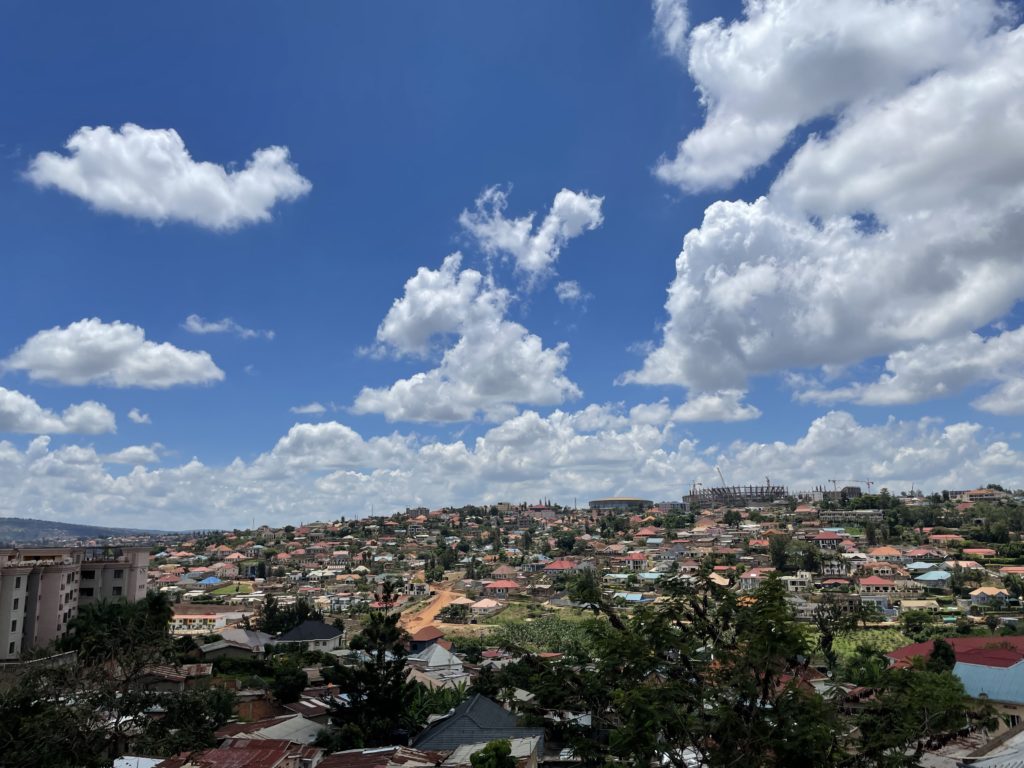The Finnish HEIs included the University of Helsinki, represented by Hanna Posti-Ahokas, Elizabeth Eta, Nico Stockmann, and Joni Sikkilä, and Tampere University, represented by Elias Pekkola and Íris Santos. Other Finnish HEIs – including Tampere University of Applied Sciences and Jyväskylä University of Applied Sciences – joined a few sessions virtually. The visit took place from 27 March to 5 April and aimed to deepen ongoing partnership development efforts, coordinated by GINTL Africa at the University of Helsinki, between Finnish and Rwandan HEIs. To achieve this objective, the trip was planned around two key activities:
- Understanding the local education system and structures through visits, presentations, and discussions at different Rwandan HEIs, including the University of Rwanda – College of Education, Rwanda Polytechnic, and the Rwanda Higher Education Council (HEC) in preparation for participating in the ongoing HEP programme call.
- Participation and contribution to the 1st International Conference on “Re-shaping Education for Sustainable Development”, organised by the University of Rwanda – College of Education.
In a recent blog post, Elias Pekkola and Íris Santos present insights into the process of the building of this partnership. In this blog post, the authors reflect on GINTL’s contribution to the conference as well as on the role of research in developing understanding and enhancing mutually beneficial international academic partnerships.
Conference contributions by the GINTL HEIs
The University of Rwanda – College of Education, in collaboration with the United Nations Sustainable Development Solutions Network (SDSN), organised its first international conference on “Re-shaping Education for Sustainable Development” at the Kigali Conference and Exhibition Village from 28 March 2023. The conference was hosted under the theme “Re-thinking Holistic Education for the 4th Industrial Revolution” to facilitate the sharing of research-based innovative educational strategies in their efforts to adequately prepare current and future generations to proactively confront unpredictable changes of the 21st century.
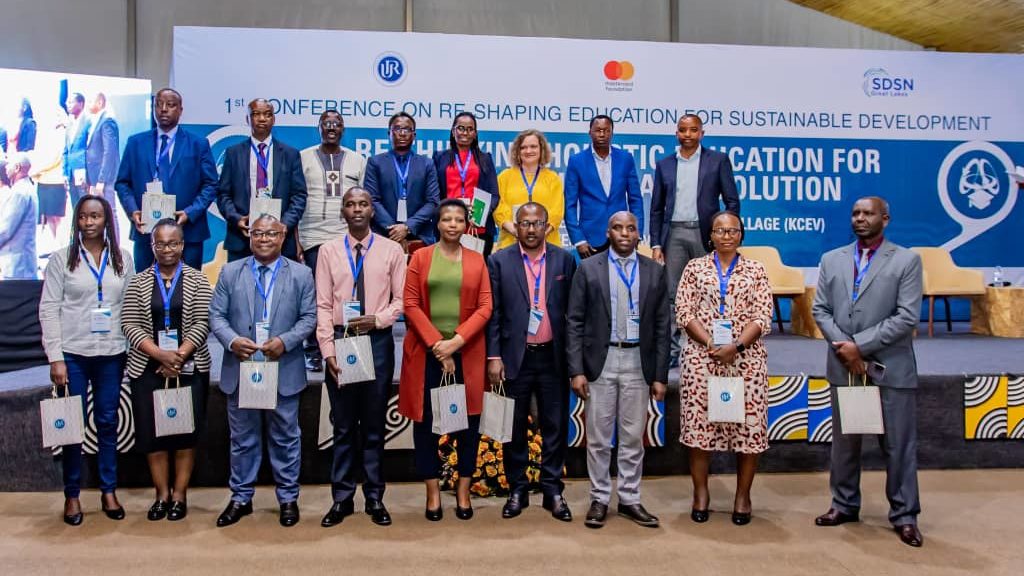
Conference themes
Presentations in the conference were divided into 16 thematic clusters:
- Enhancing quality in education
- Teacher education and development
- Educational leadership, policy, and governance
- Equity, diversity, and inclusion in education
- Research and knowledge transfer in education
- ICT integration in education
- Education access, and flexibility
- Rationalisation of scarce resources in education
- STEM education
- Managing education in emergency/marginalised populations
- Practicum and teacher education
- Education for sustainability
- Early childhood education
- Lifelong learning and involvement in enterprises
- Health care and education
- Human rights and peace education
These thematic clusters reveal a lot about the priority areas of education development in Rwanda. They also point to the importance of enhancing understanding and developing globally but also locally relevant solutions to 21st century challenges through research and co-learning and sharing.
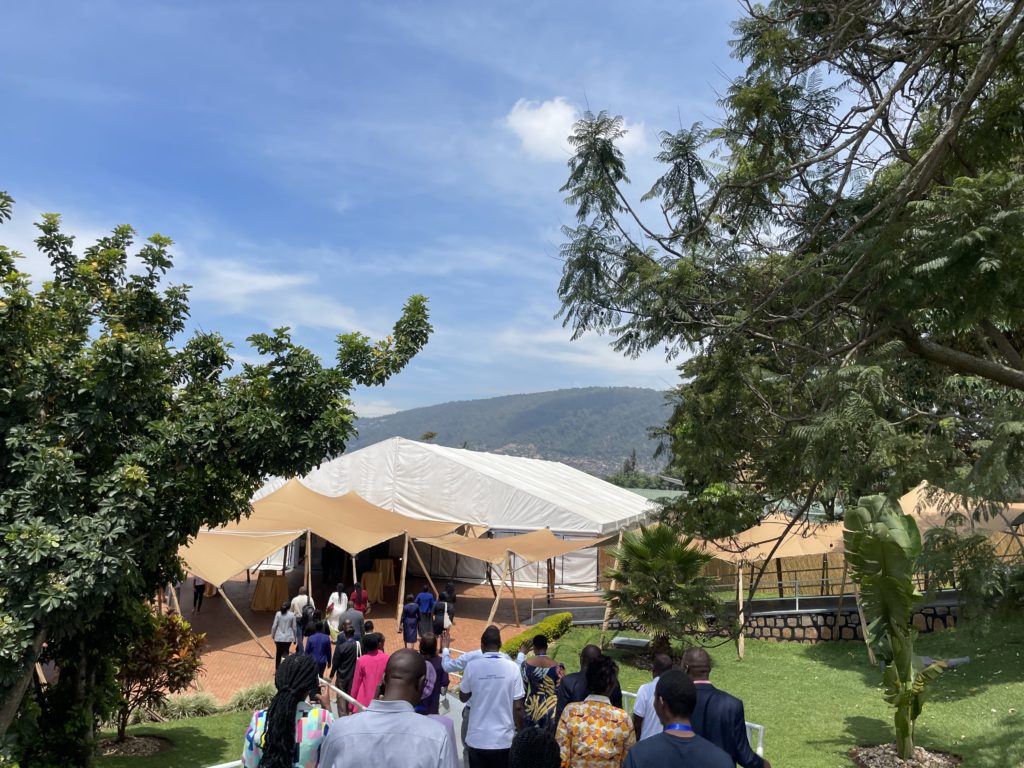
GINTL HEIs’ contributions to the conference
In the spirit of contributing to global and local understandings of education development, the GINTL HEIs contributed to the conference by co-chairing thematic sessions, two presentations and a keynote speech. Postdoctoral researchers Íris Santos from Tampere University and Elizabeth Eta from the University of Helsinki presented papers at the conference in which they examined the global/local dynamics in education development.
Santos’ presentation, titled “Constructing Education Systems in the Global South: The Role and Impacts of International Organisations through the Sensemaking of Finnish Education Experts”, was based on a co-authored paper with Elias Pekkola and examined international organisations’ roles and impacts in the development of education.
Eta’s presentation was titled “Reimagining national policy making in the era of global education policy development”. With a focus on the Bologna Process and drawing from almost a decade of research and publications on the topic, Eta’s presentation highlighted a) the role of national, regional and international actors in higher education governance, b) diffusion processes of global education policies, and c) what happens to existing local policies when global education policies are adopted.
Hanna Posti-Ahokas, GINTL Africa regional expert gave a keynote speech with the title: “How to build good international partnerships? Lessons from Africa: Finland partnerships in doctoral education and collaboration projects in higher education”. In her keynote, she draws our attention to some broad questions around internationalisation and partnership development with examples from two ongoing research projects, outlined below. The first research project examines doctoral dissertations on education development in Africa completed at Finnish universities (in collaboration with the University of Helsinki and University of Oulu). The other project explores stakeholder dialogues on ingredients of good partnerships (in collaboration with UniPID, the University of Oulu, University of Namibia and the University of Helsinki).
Posti-Ahokas states how the ongoing partnership development between Finnish and Rwandan HEIs as well as these ongoing collaborative research initiatives “point to some examples of persistent challenges but also some pockets of hope where re-imagining more equitable partnerships between higher education institutions between the global South and the global North could happen.”
The role of research in international partnership development
Research is at the core of GINTL’s operationalisation, as highlighted in one of its key objectives to “co-create research-based solutions to global education challenges”. As international academic partnership facilitators, practitioners, and researchers, the authors stress the importance of having our work be informed by research.
International academic partnerships take place not only between people and institutions but also within intersecting societal contexts. The conference in Rwanda, with presentations of diverse research topics related to education around the world as well as in Rwanda specifically, was an opportunity to gain a better understanding of the Rwandan education system, its development and priority topics, and areas for partnerships aimed at improving the quality of education provision and its relevance. This improved understanding is crucial for partnership development between Finnish and Rwandan HEIs – ones that are contextually relevant and contribute to ongoing developmental needs and priorities.
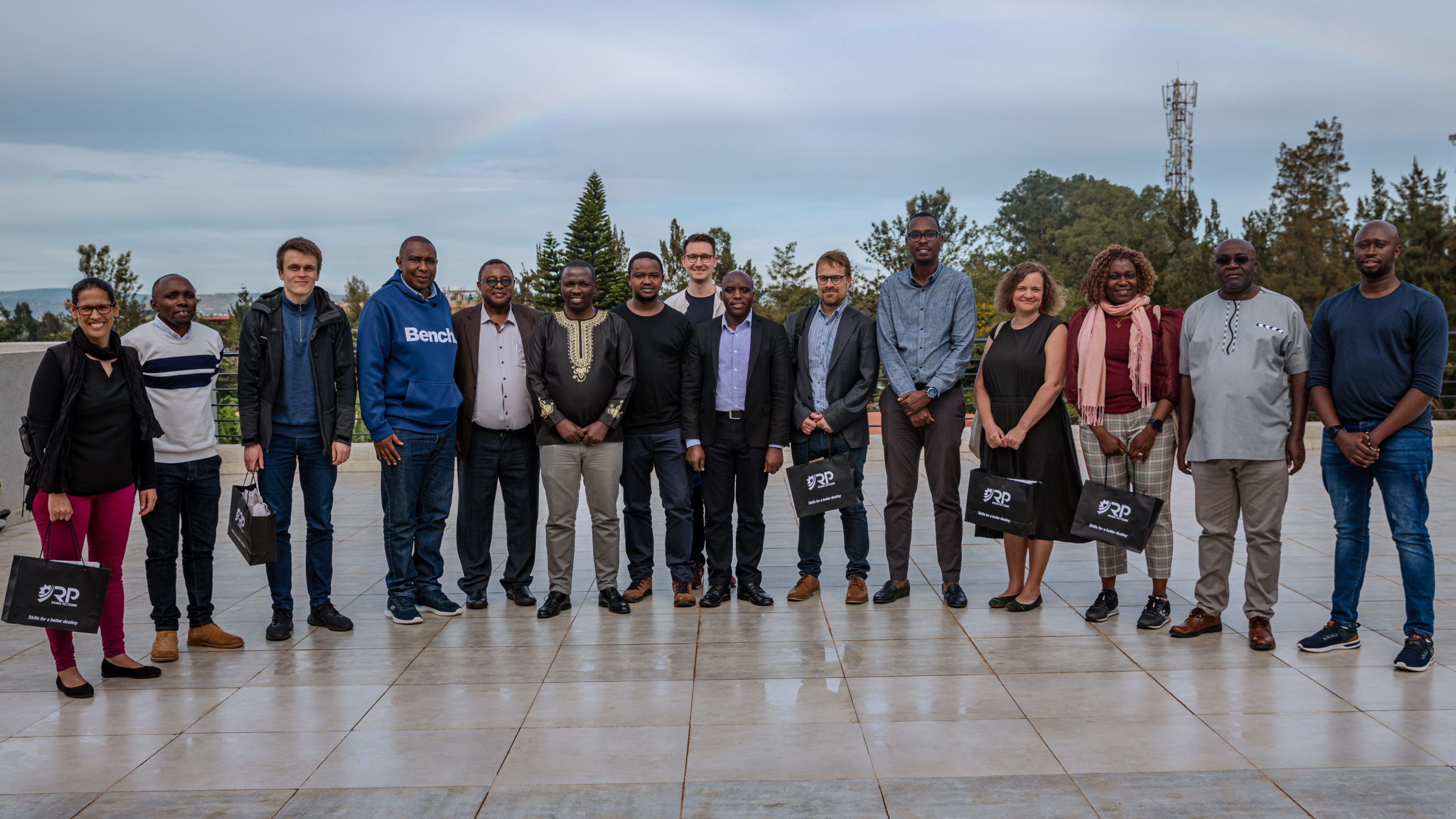
Understanding the Rwandan education context in the development of these partnerships also requires understanding the fundamental principles and values that inform education in Rwanda. The latter is a current research project of one of the master’s students the GINTL coordination is supervising in their thesis seminar at the University of Helsinki, Joni Sikkilä. Sikkilä accompanied the GINTL team on the trip to Rwanda and was therewith able to collect data for his master’s thesis through expert interviews, engaging in informal discussions with lecturers and students on his research topic.
Besides research on concrete topics in education, the GINTL group stresses the importance of research on the dynamics of partnership development itself in recognising and improving current international partnership practices. It is within this understanding that Posti-Ahokas, in her keynote presentation, shared insights from ongoing research on international partnerships between Finnish HEIs and their counterparts in Africa, presenting both organisational and relational dimensions that support partnership development. She also highlighted inequalities and power asymmetries present in partnerships and addressed one of the core conundrums of the GINTL network with the question: “How do we acknowledge the issues that come with inequality, and what can we do to minimise the unequalising effects of our activities?” Finding concrete answers to this question is critical for building mutually beneficial, responsible, and sustainable partnerships. It is a shared responsibility among collaborating partners to include answering this question as an objective of their activities and to co-create opportunities for dialogue on the topic.
Key take aways
Critical perspectives and engagement in academic collaboration
Participating in the First International Conference on “Re-shaping Education for Sustainable Development” reassured us how important it is to research education and its development with a critical eye and to engage in collaboration in our academic roles.
Understanding key education challenges in diverse contexts through in-depth discussions
The unique gathering of academics enabled in-depth discussions on the research findings presented at the conference and helped the participants understand firstly what key education challenges look like in diverse contexts and secondly how researchers and practitioners working at different levels work to find solutions to them.
Funding implications, research recommendations, and their implementation
As a large part of educational research presented in the conference was funded by international development actors, most presentations gave recommendations for policy and practice. It inevitably raises the question: How will these recommendations be communicated to the relevant bodies, and how is the link between recommendations and their implementation built?
Connection between research, policy and practice
Education development requires an integral connection between research, policy and practice. It is in part this dome of expertise which pushes for educational sciences to be a field with increasingly more emphasis on academic capacity building.
For GINTL, the conference was an important event to create connections to the research community in Rwanda and help us think how the GINTL network can contribute to meaningful educational research in Rwanda and beyond.
The authors
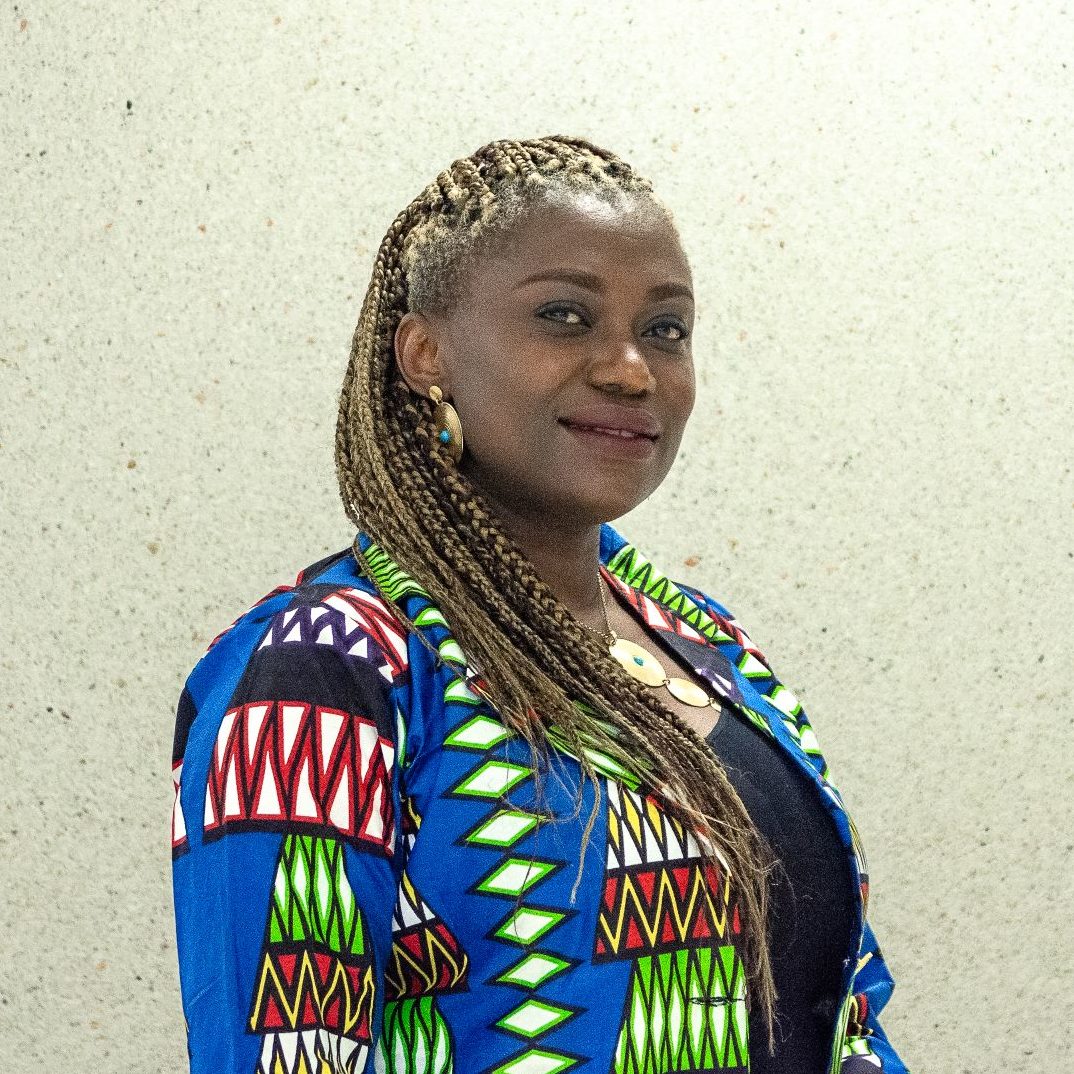
Elizabeth Eta, PhD
Postdoctoral Researcher | Global Innovation Network for Teaching and Learning (GINTL)
elizabeth.eta[at]helsinki.fi | Research portal
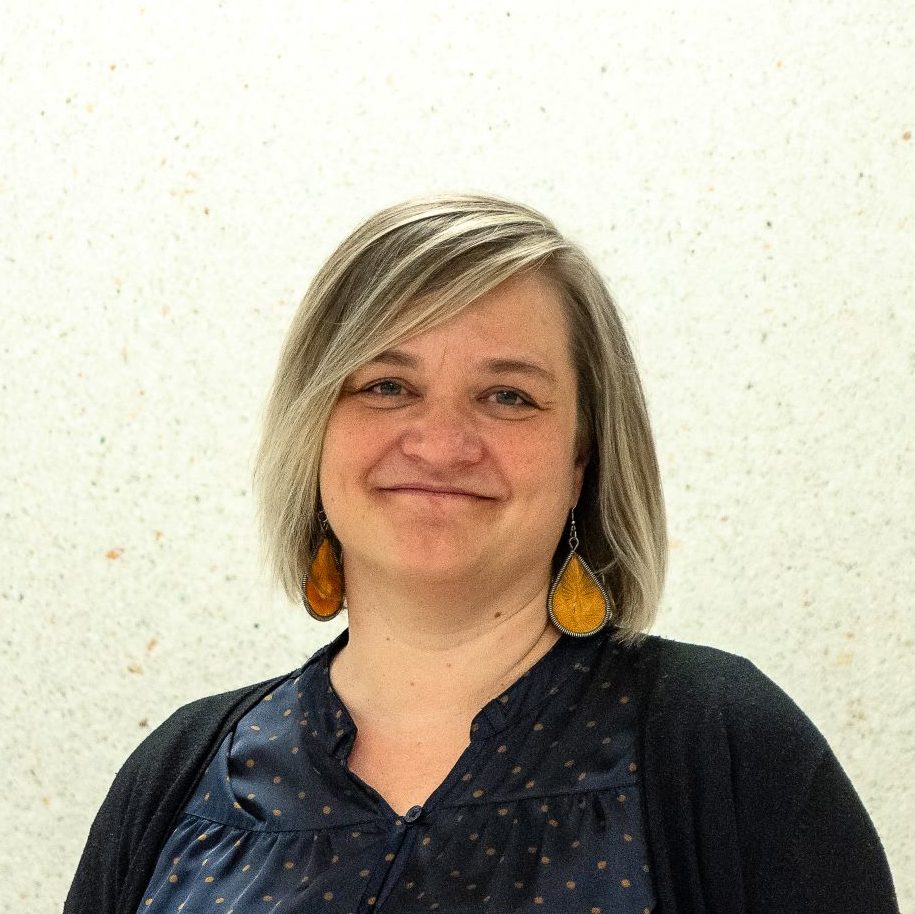
Hanna Posti-Ahokas, PhD
Regional Expert, Africa | Global Innovation Network for Teaching and Learning (GINTL)
Adjunct Professor, Senior Researcher | University of Helsinki
hanna.posti-ahokas[at]helsinki.fi | Research portal
Images
- Image 1: Kigali, Nico Stockmann
- Image 3: Kigali Conference and Exhibition Village, Nico Stockmann
